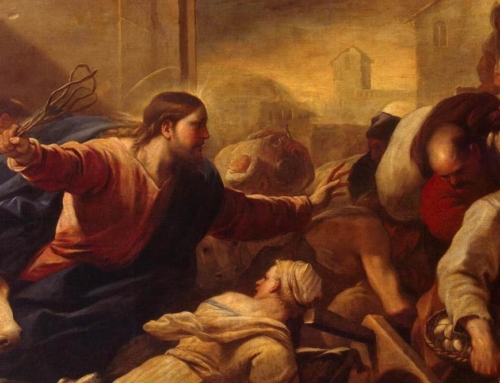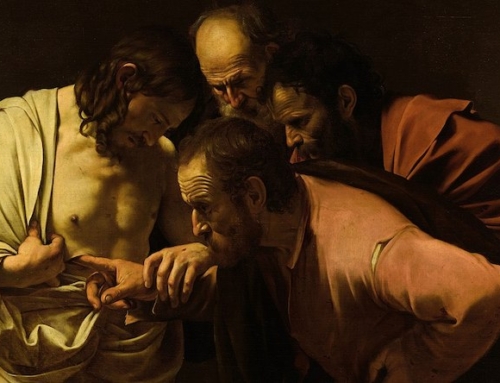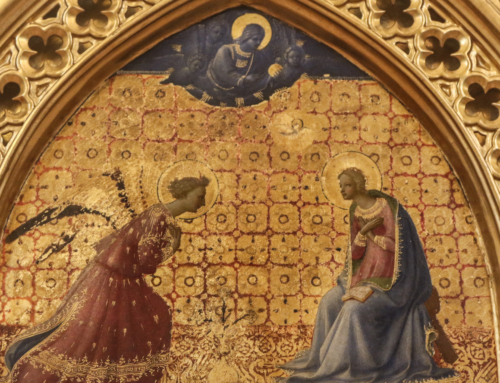In this season of penance, we ask God to have mercy. Human mercy involves compassion, looking upon someone’s misery and feeling it as your own. But God, in his eternity, can’t feel misery—he can’t feel anything. I don’t mean that the Holy Trinity doesn’t know what our misery feels like, nor that he does not love. He made our heart in his image, and he knows most intimately all of our experiences, but not by enduring them himself. This is because God doesn’t change: he perfectly enjoys an unchanging and infinite happiness beyond happiness. Feelings imply changeability and dependence on another. God is above this.
But don’t we hear about the depth of God’s feeling heart through his prophets? Don’t we hear God cry out, “I writhe in pain!” (Jer 4:10) or that “the Lord takes pleasure in his people” (Ps 149:4)? Does this contradict the unchangeability of God?
No. God speaks this way not to say that we are pulling on his heart, but that his heart is freely given to us: “I have graven you on the palms of my hands” (Is 49:16). The eternal Godhead doesn’t feel sorrow for our misery in the way that we do, but he establishes a covenant with us: “I will redeem you with an outstretched arm and with mighty acts of judgment. I will take you as my people, and I will be your God” (Ex 6:6–7). His mercy is no weaker for the fact that the Divinity has no heartstrings to pull. In fact, it is all the stronger because it flows from a choice that is infinitely free.
That should have been enough for us, but it wasn’t. God’s people continued to complain that he didn’t care for them, that he had tricked or abandoned them: “Why is the Lord bringing us into this land only to have us fall by the sword?” (Num 14:3). So all the passages from the prophets above, and many others, express God’s repeated pleas to his wayward people, trying to convey to them the depth of his love.
Consider what it means that God didn’t stop there. If it wasn’t enough for us to know his peace, now he takes upon himself the ability to feel our misery and death. If it wasn’t enough that he had made a covenant with us, he becomes a covenant himself. For the Son of God became flesh, the Son to whom it is said, “I have given you as a covenant to the people” (Is 49:8). God is still unchangeable in his divinity, but in the assumed humanity of Jesus Christ, he truly feels our misery and pain—even unto death. And the blood of this covenant stands forever.
What misery, what mystery, what mercy! He took upon himself the Lent that belonged to us, and now we follow him through it, yearning to see his Easter—and call it our own.
✠
Photo by Chris Dixon







